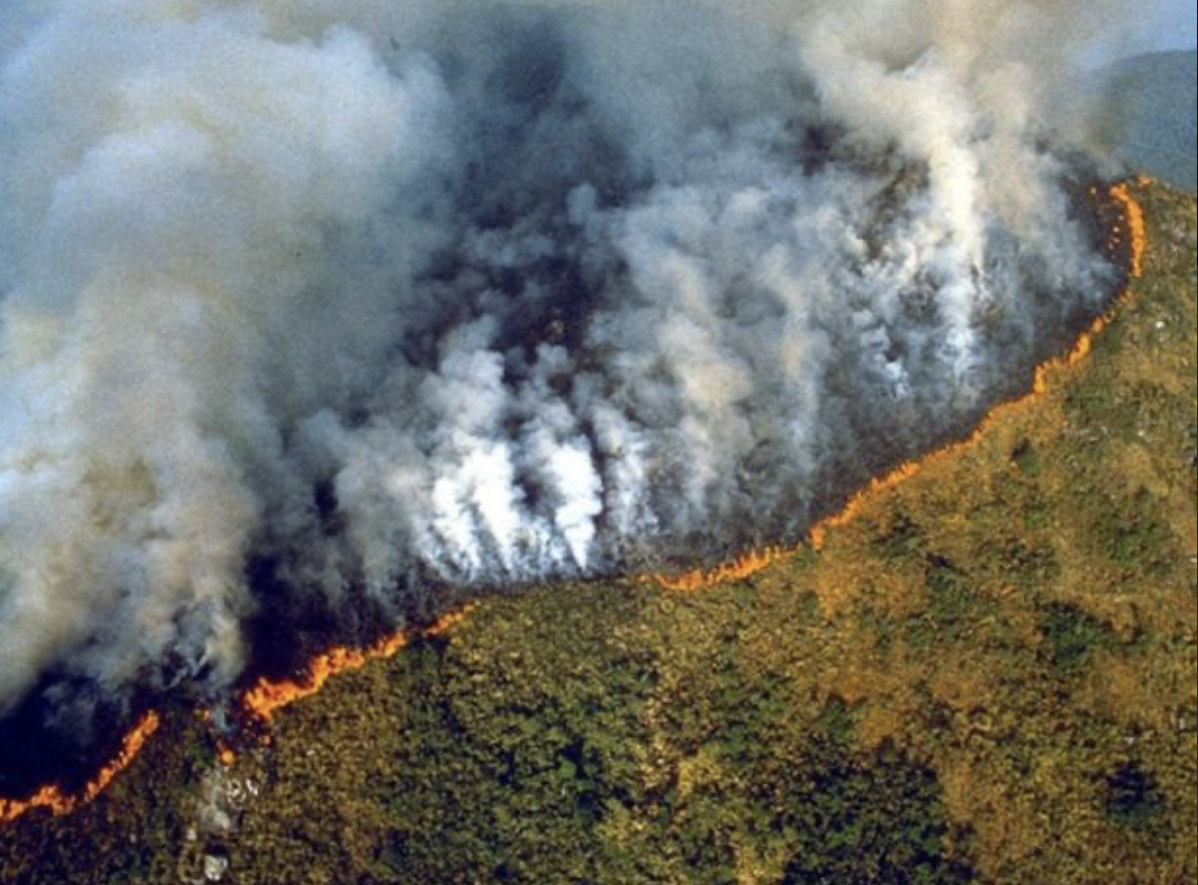ABLAZE: The world’s largest rainforest, the Amazon, is experiencing one of the worst fires known to date.
By Tanner Rowland, Editor
The Amazon is the world’s largest rainforest and one of Earth’s most vital ecosystems. With about 60% of the forest located in Brazil, it provides our planet with over 20% of its oxygen and is home to millions of species of plants and animals. Starting in January of 2019, fires began spreading across the Amazon and have grown to become a significant global issue impacting populations far beyond the borders of Brazil.
Consisting of 1.7 billion acres, the Amazon is immense in size and stretches across many regions of South America. It provides the world with environmental benefits that would be detrimental to the earth if they were ever lost. According to “The Importance of the Amazon Forest” written by Rhett A. Butler, the Amazon’s 390 billion trees are able to “lock up massive amounts of carbon in their leaves, branches and trunks [which captures] more than a third of all carbon stored by tropical forests worldwide.” However, over the course of months, over two million acres have been burned and with each day, the number rises. With trees burning and the forest fading, people have searched to find the root cause of how this massive fire broke out, and early reports point to both weather conditions and human activities.
Throughout 2019, Brazil has been fighting tens of thousands of fires, with most occurring within the Amazon rainforest. Detailed by Aristos Georgiou in his article “How Did the Amazon Rainforest Fires Start?” on Newsgeek, he writes that the fires are due to “the frequency and intensity of droughts.” Normally the rainforest is protected from large scale fires due to its humid weather patterns, but with an increased frequency of droughts, the Amazon is no longer so easily sheltered. Not only is the Amazon’s unusual weather a factor, but human activities are also to blame. As Georgina Laud states in her article “Amazon fires: How did the Amazon fires start? What caused the rainforest fires? Is it normal?” the wildfires across the Amazon “are being blamed on cattle ranchers and loggers, who want to clear and utilize the land say environmental organizations and researchers.” When people farm, they require rich, green soil; but the need for healthy soil comes with a price. Georgiou mentions data published in The Guardian, which shows that “Amazon deforestation rates have risen to the point where around three soccer fields of tree cover are being lost every minute.” Sadly, this human activity has exacerbated global warming and climate change and has compounded the earth’s environmental concerns. The Amazon’s fires is now one of those major concerns and the challenge humanity faces is discovering what can be learned from the event and how we can prevent such tragedies in the future.
No one knows how long it will take for the Amazon to recover. Given its enormous impact on the planet, scientists will be studying this for years to come. What is universally accepted is that life on earth without the Amazon would greatly impact all living things on this planet.

